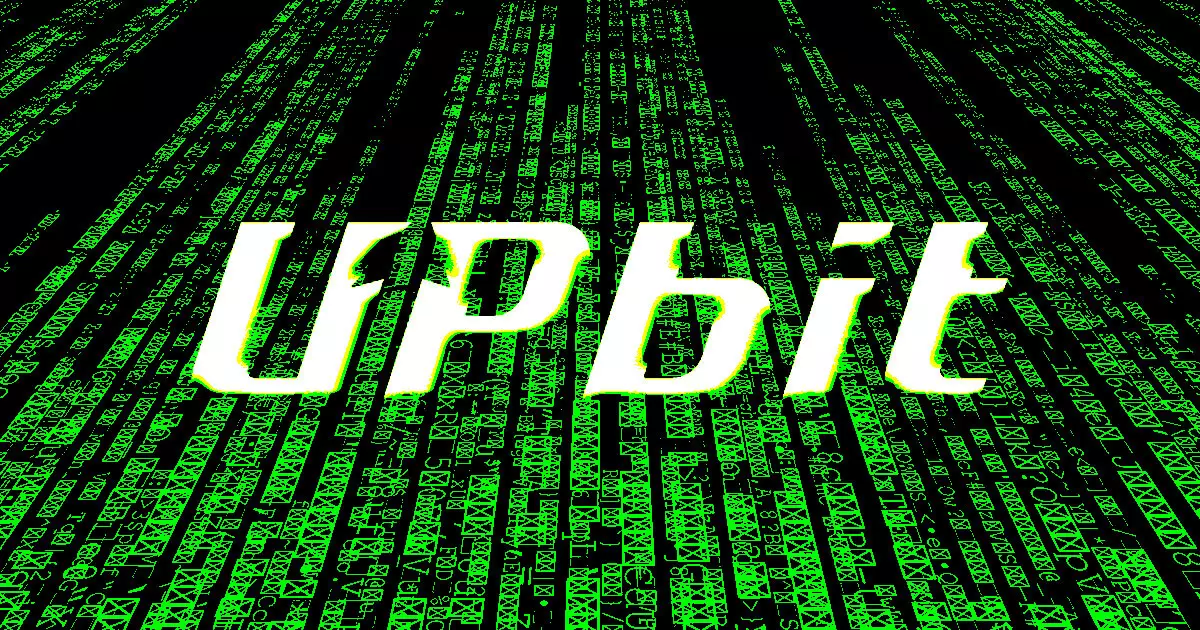In a shocking revelation, UPbit, one of South Korea’s prominent cryptocurrency exchanges, reported that it had experienced a staggering 159,061 hacking attempts in the first half of this year. The data provided by Dunamu, the firm’s operator, unveils a concerning trend of escalating risks, with hacking attempts skyrocketing from 8,356 in the latter half of 2020. This alarming surge signifies a jaw-dropping increase of over 1,800% in attacks on UPbit over the past three years.
The surge in cyberattack attempts not only exposes the vulnerabilities of UPbit but underscores the broader risks faced by numerous cryptocurrency exchanges. Just recently, HTX exchange fell victim to a hack that resulted in a significant loss of approximately $8 million in Ethereum (ETH). UPbit, as one of South Korea’s largest crypto platforms, has recognized the gravity of this situation and is taking proactive measures to fortify its security infrastructure against the growing threat landscape.
To enhance the protection of its assets, UPbit plans to increase its cold wallet holdings from the current level to an impressive 70%. Cold wallets are renowned for their resilience against hacking attempts, providing a robust defense against cyber threats. With this strategic move, UPbit aims to reinforce the safeguarding of its assets, as hot wallets have traditionally been more susceptible to hacking incidents.
Moreover, UPbit is implementing novel security protocols for its hot wallet funds. These hot wallets will now operate within a multi-layer security structure, adding an additional layer of protection to these assets. By adopting this approach, UPbit aims to mitigate the potential risks associated with hot wallets and ensure the utmost security for its customers’ funds.
Recognizing the need for advanced security measures, UPbit has introduced an innovative Fraud Detection System (FDS), powered by artificial intelligence technology. This cutting-edge system will aid in preventing financial fraud by identifying suspicious activities and potential security breaches. The integration of AI-based security solutions is a significant step forward for UPbit in combatting cyber threats and ensuring a secure trading environment for its users.
South Korean politician Rep. Park Seong-jung acknowledged the rising frequency of cyber attacks on cryptocurrency platforms and raised concerns about the government’s role in managing these incidents. To address this issue, Seong-jung called for the Ministry to conduct white mock hacking tests to assess the information security preparedness of businesses, including virtual asset exchanges that handle personal information. By conducting these tests, the government aims to gain a comprehensive understanding of the evolving information security landscape and develop effective strategies to protect sensitive data.
As the cryptocurrency industry continues to grow and evolve, the importance of robust security measures cannot be overstated. The alarming surge in hacking attempts on UPbit serves as a wake-up call for other exchanges to reassess and strengthen their security protocols. By investing in state-of-the-art technology, such as AI-backed systems and multi-layer security structures, exchanges can create a safer environment for traders and instill confidence in the crypto community.
It is crucial for both businesses and governments to collaborate closely to combat the growing cyber threats in the cryptocurrency space. By taking proactive steps, conducting comprehensive security tests, and implementing stringent security measures, cryptocurrency exchanges can stay one step ahead of cybercriminals and ensure the protection of their customers’ assets.


Leave a Reply